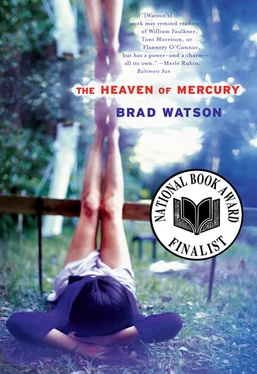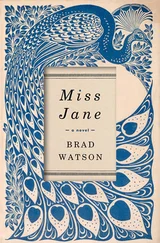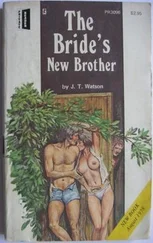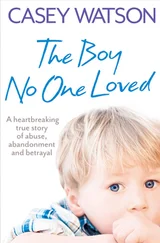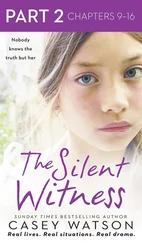— Don’t look at me, I just saved the damn fool son of a bitch.
— That’s what I’m steamed about.
— Not if you knew what I saved him from.
— I know, all right.
Levi turns off the radio when he walks in, gives him a grin, nothing but an inch or two of tiny teeth bared on the perfectly round ball of his head.
— If you ever pull a stunt like that again Levi I’ll kill you. You owe me five hundred dollars.
— For what.
— Never mind what. For saving your ass from picking cotton at Parchman for the next five years that’s what.
— You give that whore five hundred dollars? Whistles. -You got a cigarette?
Never get that money, he knew, but easier to keep Levi straight if he owes you cash. The memory of it would last a year or two, anyway, things somewhat under control. Before Levi and Merry like bad children cooked up some other scheme to entertain themselves and torment him and Birdie.
Asked himself sometimes why in the hell he never left Birdie for Ann whom he loved and there’s your answer: Might not have been much of a marriage but by God it was his family and a good one compared to anything he’d ever known, and be damned if he was going to give any of those godforsaken Urquharts the satisfaction of seeing him fail at anything.
Wanting to reach a hand out for the ax there in the graying film of his vision, not inches from his eye yet as if across some vast and light-bent field at the end of a long day, piecemeal light scattering the air like mercury from a broken thermometer skittling across the floor.
AS SOON AS Miss Birdie called from the hospital and said Mr. Earl had died out at the lake, Creasie went to her cabin, got her coat, and walked down the driveway to the road. She stood nestled into the leaves of the redtop bushes beside the highway and when she saw the yellow-orange school bus coming she stepped out and flagged it down. It was how she got into town and back on the occasional weekday she needed a ride. All the children raucous in the back so it was the only time she rode a bus and sat up front behind the driver and she liked it. The view was good, with the world swinging by so fast when he made his turns. But she hardly noticed, today. Every so often a little balled-up piece of school paper bounced off the back of her head to the wild chorus of delight behind her but she paid it no mind.
When he had delivered all the children to their homes, the bus driver drove back to town and let her off beside the road near the path down into the ravine. She didn’t wave, as she normally did, when the bus drove off. She crossed the street and started down the trail. She hadn’t realized she’d left her house shoes on, with the heels all flattened, until she got on the trail, with its roots and little dips and gopher holes, and so she shuffle-stepped slowly along it. Her feet cold in them now. A rabbit scooted a brown-and-white blur from the trail’s edge across and into the brush on the other side and a gray squirrel barked at her from the low limb of an oak tree. And the winter birds everywhere, hardly singing but fluttering by so close as to breeze her face and sometimes squawking when they made a perch, or dipping away like on a bob string weaving down the trail ahead of her as it narrowed and the light grew gray and solemn blue through the deepening canopy of skeletal and veiny leafless great hardwoods and silent pines.
She went to her own cabin, which she’d painted green because she liked the color and the way it made the house almost invisible in green season when you were a ways off on the trail looking into the clearing at the bottom of the ravine. Inside, she shoved a few sticks from the trail into the stove, sprinkled them with some kerosene-soaked sawdust. When that was crackling she laid in a stick of stove wood and closed the door and sat beside the stove with her hands out, warming.
She got up and looked out her tiny kitchen window and could just see Vish’s cabin in the gathering dusk, come early here in February. Was ending up a dreary afternoon after the sun peeking early on. No drizzle but the air in the woods turning so gray and damp as to almost seem like it. She stood there looking. Couldn’t see anything for a long time and then a little light inside, just a flicker. She went back to the stove. Getting hungry. She got a sack of meal from the cupboard and poured some in a bowl. She got a dab of lard from a little bucket and put it in a skillet and put the skillet on top of the stove to heat. There was some water left in the water jug and she poured a little into the meal and stirred it. She took an egg from where it was wrapped in a soft rag in her handbag, cracked it into the bowl, and stirred that in. Would be better if she had some buttermilk but water would do. Just needed something on her stomach, for nerves as much as hunger.
When the lard in the pan started to smoke she gave the meal another stir and poured it in, hissing in the hot lard, watched it cook. She liked to make bread in the oven but didn’t want to fool with that, and with no milk it’d be better browned on both sides and crispy. She’d made it thin. She watched it thicken and crack on top and then she turned it over with a spatula. The bottom was dark brown. She cooked it another few minutes and took the pan off the stove and set it on the table and cut out a piece to cool on a plate, and she ate it with a cup of water from the jug, chewing and washing down the dry bread with the water, and looking at the little flickering flame in Vish’s cabin down the path. She saw something cross over inside and block out the flame for a second, then the flame again. She wiped her hands on a rag and took another drink of the water, closed the stove vents, and put her coat back on, looked out the window again, and then went out to the porch. It was getting pretty cold. She stepped carefully down the steps and into the path and walked toward Aunt Vish’s cabin.
— Creasie! she’d heard him call, heard a clatter in the sink. He stuck his head into the pantry, mad. -I’ll be back in an hour, so make up a fresh pot of coffee. That’s the worst cup of coffee I ever tasted in my life.
— No, sir, Creasie said to herself now as she stepped up onto Vish’s porch and lifted her knuckles to rap lightly on the old plank door. -I reckon it was worse that that.
AUNT VISH LOOKED made from a tough, blackened root in the flickering faint light from the coal oil lamp on the little shelf behind her. The cabin was hammered together of unplaned planks, burlap tacked to the walls for insulation tattered and torn here and there and stained. She held out a clean mason jar toward Creasie across the table. Her breath like smoke from her mouth when she spoke in the cold air.
— You put it in this. Tell young Mr. Parnell to put it in this.
— Yes’m, Creasie said. -What do I do with it after he give it to me?
Vish’s bloodshot, jaundiced eyes watched her without movement. Outside it was quiet as inside, not a breeze rustling a single dry leaf. Still February winter, maybe a drizzle drifting in, maybe a patter on the dead leaves carpeting the trails. The woods around there black as what you see when life goes out, before whatever light in whatever world comes next shows itself, black nothing, switches of branches and sticky spiderwebs like some gauntlet between here and there.
— You keep it with you.
After a moment, Creasie nodded.
— Yes’m.
The old woman’s hands lay on the table before her, two black crooked claws, long yellow nails resting on the unfinished plank top of the table. She showed what teeth she had then, one long dark horse tooth in front, gaps between what seemed occasional sharpened incisors here and there on back.
Читать дальше
